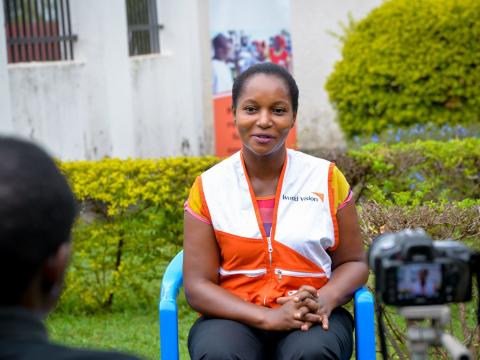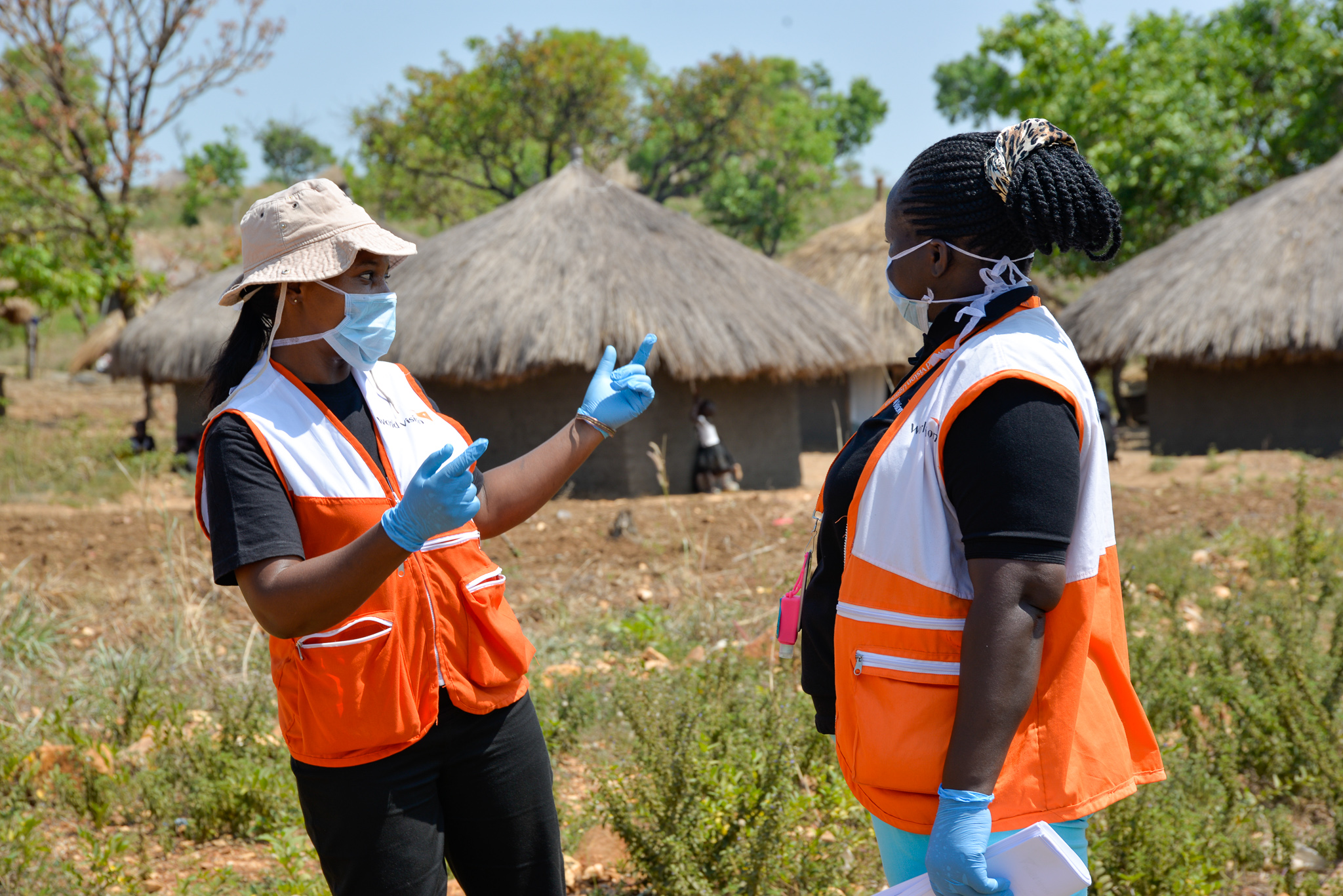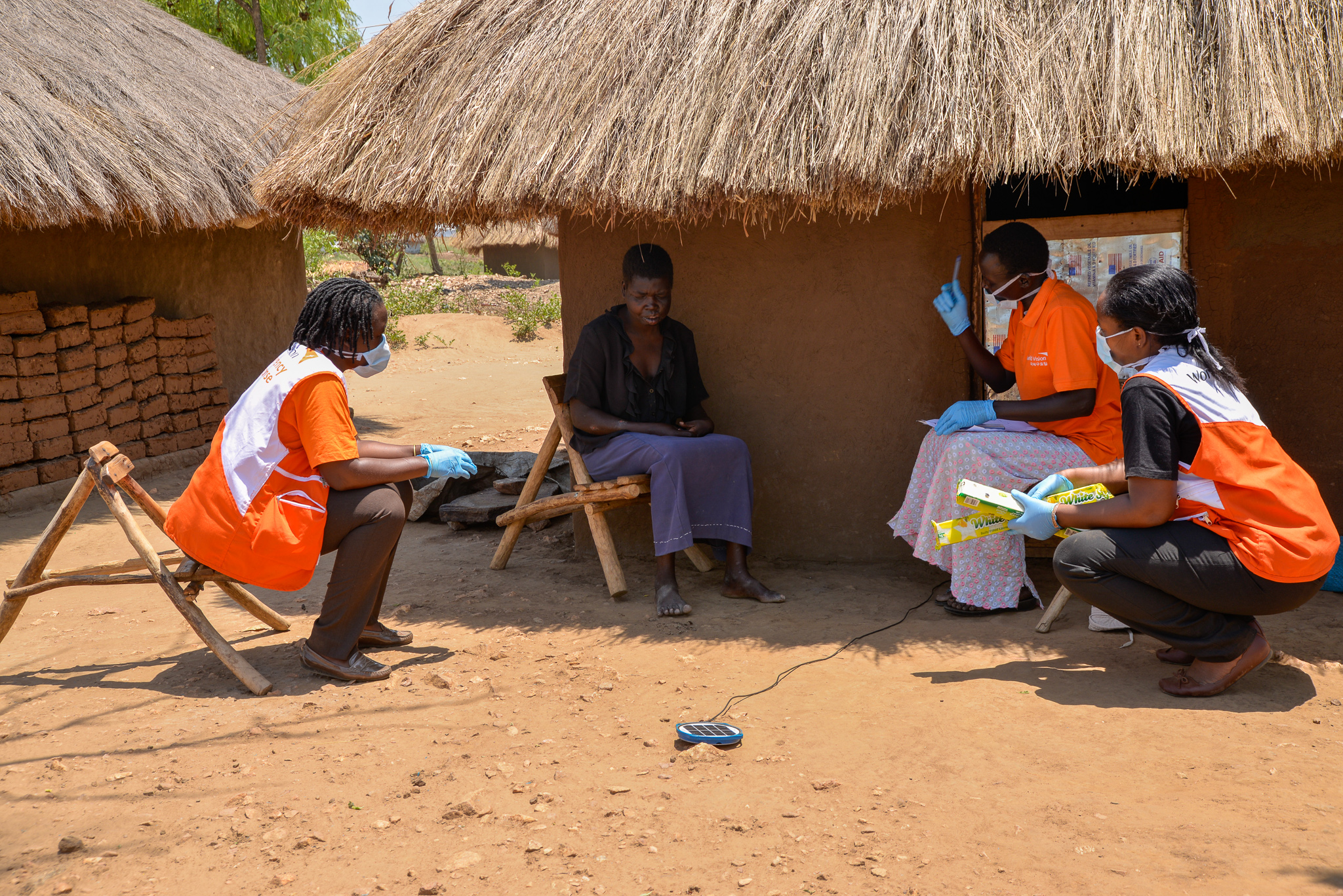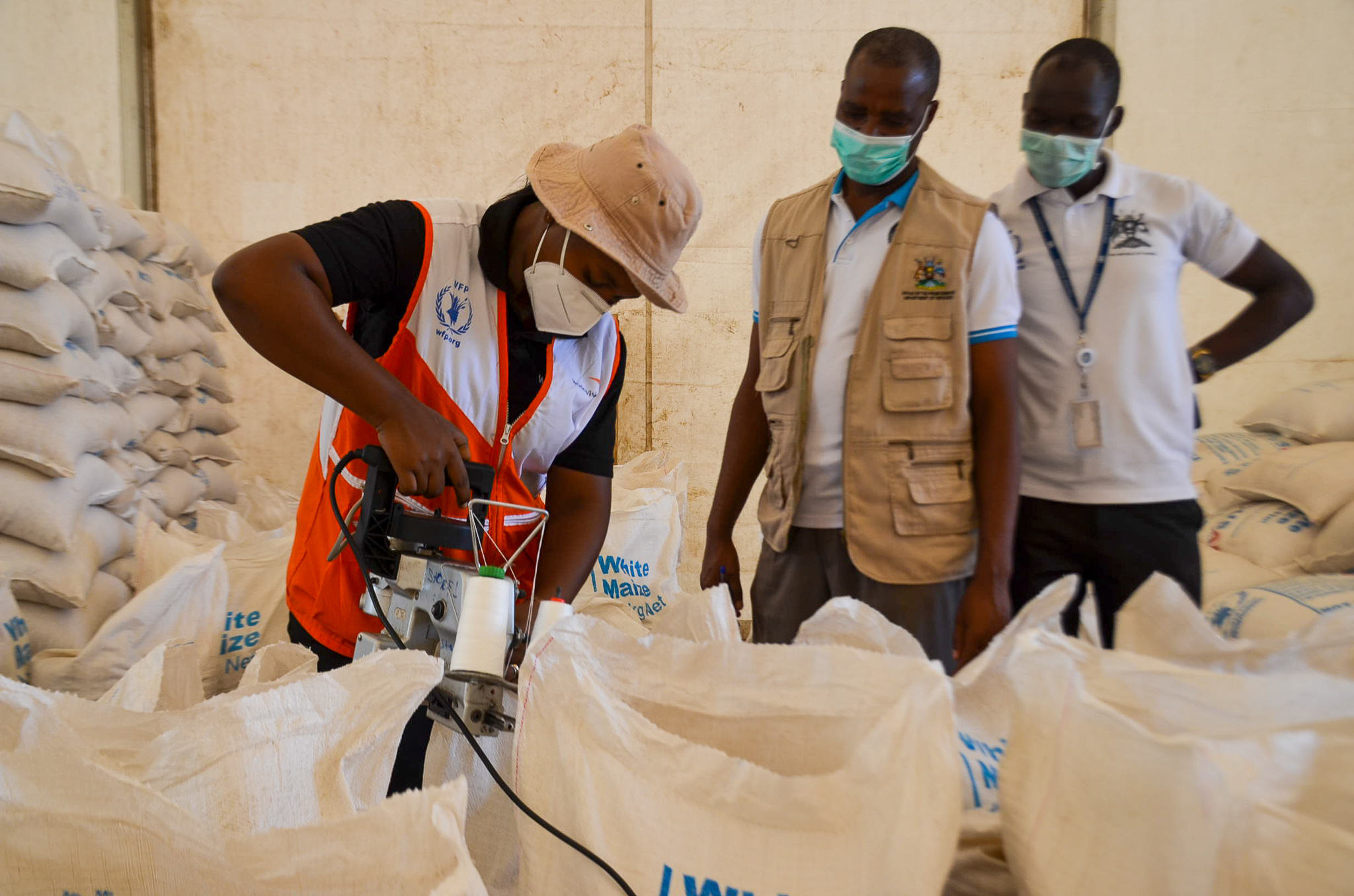Protecting staff and vulnerable children is my top priority: Mary Njeri

By Derrick Kyatuka, Communications Officer, Uganda Refugee Response
In late February 2020, Mary Njeri was appointed Acting Director for World Vision's Uganda Refugee Response in the West Nile Region. Previously, Mary had worked as Project Manager, overseeing projects supporting refugees from South Sudan. She assumed office when COVID-19 had just been declared a pandemic.
One month into her new role, Uganda registered its first case of COVID-19, after which the Government announced protective measures to curb the spread of the virus. Among the proposed measures were restricted movements and social distancing. The ongoing crisis had affected World Vision operations across the country, including the Refugee Response. As an astute and industrious leader with a knack for rational decision-making, Mary, who was now leading a Response (COVID-19) within a Response (Refugees), had to make quick adjustments in operational priorities to ensure that her team continued serving the most vulnerable children and communities in a safe, timely, and most effective way.
“One of my first urgent tasks was to ensure staff safety and keep the Refugee Response operational, even if at a minimum. When the first case was announced, I called in a medical professional from the facility that offers us medical support to sensitise staff thoroughly about the virus, because I believed that if staff had the information, they would be better placed to protect themselves. We also equipped staff with Personal Protective Equipment (PPE) like face masks, gloves, and hand sanitiser; in addition to introducing infrared thermometer checks and installing hand-washing facilities at the office and in the field,” Mary narrates.
In order to adhere to social distancing directives, she worked with her leadership team to categorise staff. Critical staff who were needed at the moment to keep some vital activities of the Response, like food assistance, running remained on-site. Staff that could work remotely were asked to work from home, while a few others were asked to take annual leave.
“I worked with my team to identify the critical staff that we needed at that time. We have close to 250 staff but we selected 120 to stay working to serve the most vulnerable children. All non-critical staff took a break from working on the field, but we facilitated them with data bundles to enable them to continue working from home in order to decongest our offices,” Mary says.

Children’s safety
“My second priority was to make sure that children and communities are safe. We have combined forces with the district task force and other stakeholders to prevent the spread of the virus to the settlements. We worked on different strategies including sensitisation because we realised that majority of the population that we serve had no knowledge about the virus. We used equipment at our Child-Friendly Spaces like megaphones and public speakers and moved door-to-door sensitising beneficiaries,” she says.
“We got children from the communities to join the sensitisation campaign, and it was moving to find children who are willing to communicate to their fellow children on how to keep themselves safe. They are now our ambassadors in their communities. We did this intensively for weeks and we started seeing communities responding and setting up hand-washing facilities in homes. We later provided soap for the households starting with the most vulnerable children and this has promoted hand-washing as a preventive measure,” Mary adds.
The future of projects and donor reactions
The COVID-19 situation and government restrictions have affected project implementation since there are targets to achieve results within a pre-agreed period of time. Engagements with donors have kept Mary's hopes alive to serve vulnerable children alongside her team.
“The donors have been very understanding and they have allowed us to reprogram some of the money and use it for the COVID-19 response. A number of them have given us no-cost extensions especially for projects that were meant to end in April, knowing that we were unable to operate normally. I am grateful that regardless of the challenges, we continue to perform within the means and staff are safe,” she notes.
The Refugee Response leadership is adapting to the changing context and embracing new innovations to enable timely and effective project implementation.
“We are now moving away from training beneficiaries in mass gatherings and taking on other approaches like having trainers of trainers; where we train a few people and facilitate them to train other people in smaller groups to avoid overcrowding. We are also doing most of our work online, like meetings with staff because it is safer, cost effective and saves time,” she notes.
Post COVID-19
“In the second phase of our COVID-19 response that we are rolling out this month (May), we aim to support vulnerable families with vegetable seeds which they can grow within their compounds and provide nutritious foods to their children but also support them with cash transfers which they can use to acquire basic items. For us to achieve this, we are working closely with other stakeholders to ensure that we do beneficiary targeting appropriately because of the limited resources,” Mary says.
Teamwork
Mary has learnt that no one can do anything efficiently and effectively alone. Teamwork has enabled the Response Programme to stay operational with minimum staff.
“Staff who have been on the task force and in the field have done over and above their job description. They have gone out of their way to give their very best. This has been the basis of our success and God has been with us all through,” she says.

Challenges
“My greatest challenge has been balancing between staff safety and our mandate to continue serving vulnerable children and communities. For instance, during food distributions, we have many staff directly engaged in the field providing assistance. The more they are out there, the more they are exposed to the virus and yet the people in the settlement require food to survive,” says Mary.
Individual adjustments
Mary says a number of things have changed in her life since the crisis started. She cannot drive herself to and from the office because movement of private vehicles was stopped. She now has to come to office a little late and leave quite early, following directives.
“I cannot drive my own vehicle anymore. I just have to wait for a driver to pick me up in the morning, with my other colleague. By the time I reach office, I have already lost some minutes that I would usually use for my personal reflection every morning before I start work,” she says.
“I now have a lot of online meetings and emails about COVID-19. We agreed to leave office earlier than usual because we want the drivers to go back home early as well before curfew hours.”
Mary adds that every morning she has to get out of the vehicle and do mandatory hand-washing and temperature checks at the gate. Mary also misses a time when morning devotions used to bring everyone together at the office.
“Today, we are only allowed to meet in small groups of five for devotions. The National Office has introduced an online Monday devotion which helps us to at least hear from everyone now.”

Hidden Hero
“My #HiddenHero in the fight against COVID-19 has been my National Director, Jason Evans. It has been an unprecedented and challenging time but he is always available to support us. Through his leadership, we have been able to steer forward and support children and communities in this challenging time,” says Mary.
World Vision launched a US$1 million COVID-19 Response to benefit over 38 districts in Uganda. In West Nile, where the response is primarily targeted at refugee communities, over 120,000 people have so far been reached through soap and protective equipment distributions, as well as awareness messages.
Learn more about and/or support World Vision’s global work to limit the spread of COVID-19 and support the children impacted by it on our COVID-19 Emergency Response Page.